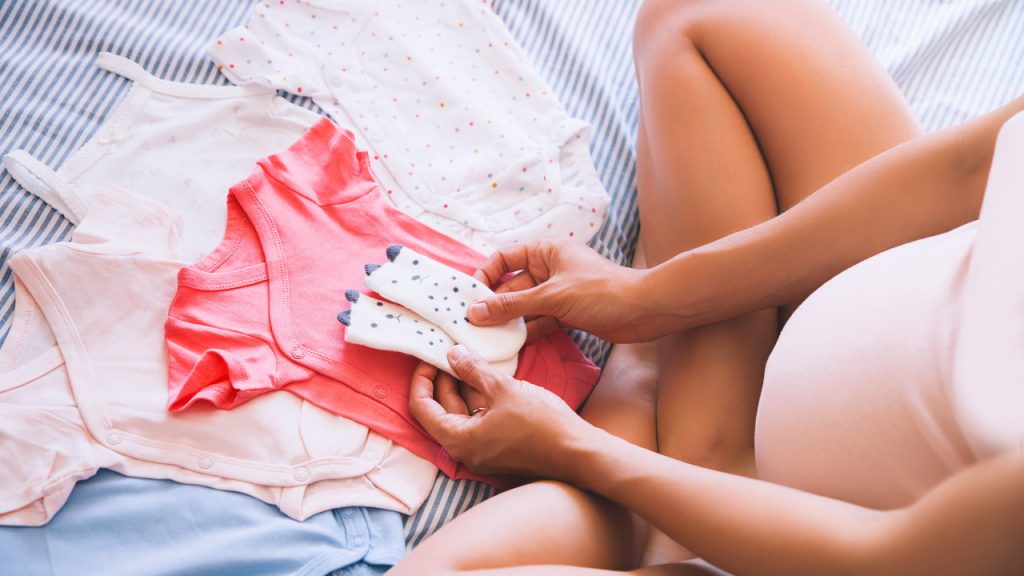As a new parent, one of the biggest challenges you’ll face is figuring out your baby’s sleeping schedule. You might have heard conflicting information about whether it’s okay for your baby to sleep late in the morning or if you should wake them up. Some parents swear by early morning wake-up calls, while others let their little ones sleep as late as they want. So, what’s the right approach? We’ll take a closer look at whether you should let your baby sleep late in the morning, if it’s okay for your baby to sleep until 8 AM or later, and what happens when your baby sleeps late. By the end of this, you’ll have a better understanding of how to manage your baby’s sleep schedule and ensure they’re getting the rest they need.
Introduction
Sleep is essential for babies as it helps them grow both physically and mentally. Allowing your baby to sleep late in the morning may seem like a tempting idea but it can have its drawbacks. As parents, it is important to strike a balance between ensuring that your baby gets enough sleep and establishing a consistent sleep routine.
One disadvantage of letting your baby sleep late is that it can disrupt their sleep schedule. Babies thrive on routine and if they are not consistently waking up at the same time every day, it can be challenging for them to fall asleep at night. This can result in a cranky and overtired baby who has difficulty sleeping through the night.
- Another risk of letting your baby sleep late is that they may miss out on important developmental opportunities as they will have less time to interact and engage with their environment. Babies learn through play and exploration, and if they are consistently sleeping in, they may not get enough of these experiences.
- Additionally, letting your baby sleep late can interfere with your daily schedule. If your baby is sleeping late, it can be challenging to get them ready for the day and fit in all of their activities and routines before their next nap.
While it may be tempting to let your baby sleep late, it is important to establish a consistent sleep routine to ensure that they are well-rested and able to thrive both physically and mentally. If your baby consistently sleeps late, try gradually adjusting their wake time by 15-minute increments until you reach your desired wake-up time.
Should You Wake Up Your Baby in the Morning?
Babies are amazing creatures. When you first bring them home from the hospital, you might wonder how you’re ever going to survive months or years of interrupted sleep. As they grow, though, you might notice that they tend to wake up earlier than they used to. That might make you wonder: should you wake up your baby in the morning?
If your baby is waking up on their own and getting enough sleep, it’s probably best to let them keep doing that. However, if you need to wake them up for some reason (like getting them to daycare before work), there are a few things to keep in mind.
- Make sure your baby is getting enough sleep. They need between 12 and 14 hours of sleep per day, which should be spread out over the course of a day and night.
- Be gentle when you wake them up. Don’t startle them by suddenly turning on the light or shaking them awake. Instead, talk to them softly and stroke their cheek to gently bring them into wakefulness.
- Pay attention to your baby’s cues. If they’re irritable or fussy when you wake them up, they may not have gotten enough sleep or may not be ready to wake up yet.
Of course, there are times when you might need to wake your baby up even if they’re not getting enough sleep. If they have a doctor’s appointment or you need to leave the house for some other reason, you might not have a choice. In those cases, remember to be gentle and pay attention to your baby’s cues.
What Time Should Baby Wake Up in the Morning?
As a new parent, it can be challenging to figure out the sleep schedule for your baby. One of the most common questions parents have is about what time their baby should wake up in the morning. The truth is, there is no one-size-fits-all answer to this question. It ultimately depends on several factors that are unique to each baby and family.
Age plays a significant role in determining a baby’s wake-up time. Newborns up to three months should sleep for most of the day, waking up to eat every two to three hours. As they grow older, babies may start to develop patterns of longer sleep and wake times. By six months old, most babies can sleep for around 11 hours at night, with naps during the day.
- Feeding Schedule: Your baby’s feeding schedule can also impact their wake-up time. If they are consistently waking up hungry in the middle of the night, they may wake up earlier in the morning to eat.
- Sleep Environment: The sleep environment can also play a role in your baby’s sleep schedule. If they are waking up due to noise or light coming into their room, it may be worth investing in blackout curtains or a white noise machine.
| Average Wake-Up Times by Age: | Recommended Total Sleep Time: |
|---|---|
| Newborn – 3 months | 14-17 hours |
| 3 – 6 months | 12-15 hours |
| 6 – 9 months | 12-14 hours |
| 9 – 12 months | 12-14 hours |
Is It Ok for Baby to Sleep Until 8AM?
As a new parent, it can be challenging to figure out the right sleeping pattern for your baby. One of the questions you might be asking yourself is whether it is okay for your baby to sleep until 8 am. Well, the answer is yes – it is okay. It is common for babies to sleep for long stretches, especially during the first few months after birth. As a matter of fact, most newborns sleep for about 16 hours in a day, with frequent naps during the day and night. So, if your baby is sleeping until 8 am, it is perfectly normal.
However, it is essential to note that the sleeping patterns of babies differ from one child to another. Some babies might prefer sleeping for short hours and waking up early, while others might sleep for long hours. Therefore, you should not be overly concerned if your baby’s sleeping patterns do not match those of other babies. The most important thing is to make sure that your child is getting enough sleep, and they are comfortable.
So, how do you know if your baby is getting enough sleep?
You should look for signs such as their mood, appetite, and energy levels. If your baby seems content, happy, and energized during wakeful hours, they are most likely getting enough sleep. Also, if your baby’s appetite is healthy, and they are gaining weight accordingly, then they are probably getting enough sleep.
It is important to note that babies do not have a set sleeping pattern, and as they grow, their sleeping patterns will change. Therefore, as a parent, you should be flexible and patient. You should also avoid comparing your baby’s sleeping patterns with those of other babies, as each child is unique.
| Pros | Cons |
|---|---|
| Allows your baby to get enough sleep | May not match the sleeping patterns of other babies |
| Helps your baby to be content and energized | Sleep patterns change as the baby grows |
| Enables your baby to have a healthy appetite and gain weight accordingly | Requires flexibility and patience from the parent |
Is It Ok for Baby to Sleep at 10PM?
Many new parents wonder about the right time for their baby to sleep. Some wonder if it’s okay if their baby sleeps at 10pm or later. Let’s dive in to find the answer.
While it’s okay for newborns to sleep for up to 17 hours per day, it isn’t necessary for them to sleep for long hours in the night. Moreover, a 10pm bedtime could disrupt the baby’s sleep cycle. When young babies don’t get enough sleep, it could affect their mood and behavior. It’s always better to follow their natural sleep patterns. However, if you’re struggling with putting them to bed, it might be worth trying a routine that works best for you and your baby.
It is also important to make sure your baby is well-rested before bedtime. Try to avoid stimulating them before putting them to bed. Additionally, if your baby is struggling to sleep, then you might want to speak to your pediatrician about it. Sometimes, it takes a few attempts to find the right sleep schedule that works for your little one.
Some helpful tips to ensure your baby sleeps well are:
- Create a bedtime routine that works for both you and your baby.
- Ensure that their environment is conducive to sleep.
- Don’t force sleep; let the baby fall asleep naturally.
| Age of Baby | Number of Hours of Sleep Required |
|---|---|
| Newborns to 3 months | 14- 17 hours |
| 4-11 months | 12-15 hours |
| 12- 23 months | 11-14 hours |
| 2-3 years | 10-13 hours |
Is Sleeping Late Bad for the Baby?
One of the biggest challenges new parents face is getting their baby to sleep. From sleepless nights to establishing sleeping routines, it can be overwhelming and exhausting. Many parents worry about whether or not letting their baby sleep in late is a bad thing. But is sleeping late really bad for the baby?
Developmental Delay?
As parents, we all want our baby to develop at the necessary rate. There is a concern that if a baby sleeps too much, they may experience developmental delays. But the truth is, a baby’s developmental process isn’t dictated by the amount of sleep they get. Rather, the quality of that sleep is what counts. Quality sleep ensures that the baby’s brain functions at an optimal level, fostering healthy development and growth.
When ‘Late’ is Not Late
Babies require a lot of sleep, and the amount of sleep a baby needs varies with age. Newborns, for instance, can sleep as much as 16-18 hours a day, with a wakeful period lasting only an hour or two. As a baby grows, sleep requirements change, and the amount of sleep they need gradually decreases. So what does ‘late’ really mean for a baby? This depends on the age of the baby and the amount of sleep they need. For instance, if a 3-month-old baby wakes up at 7 am, then sleeping till 8 am may not be a ‘late’ start at all.
Sleep is Crucial for Baby’s Health
It is crucial to understand that sleep is essential for a baby’s health. A well-rested baby is a happy baby, and getting enough sleep helps to ward off illness and promotes healthy growth. Therefore, if a baby is sleeping late, it’s not detrimental to their health unless it affects the quality of sleep they get. Keeping a baby up to a specific time in the morning or forcing them to wake up can disrupt their sleep patterns, making the quality of their sleep suffer.
What Happens When Baby Sleeps Late?
As a new parent, you might be wondering if it’s okay to let your baby sleep late in the morning. While it’s tempting to let your little one snooze for an extra hour or two, especially if it means you get a little more sleep too, it’s important to consider the impact that sleep patterns can have on your baby’s overall health and development.
So, what happens when baby sleeps late?
First and foremost, it’s important to understand that sleep is crucial for a baby’s growth and development. During sleep, the body produces growth hormones that are necessary for healthy development. If a baby consistently doesn’t get enough sleep, it can potentially impact their physical and cognitive development in the long run.
- They might have trouble falling asleep at night
- They might experience disruptions in their sleep cycle
- They may be more irritable during the day
- They may have trouble concentrating or learning new things
Additionally, sleeping late in the morning can disrupt your baby’s feeding schedule. If they aren’t waking up at their usual time, they might not be as hungry for their morning feeding, which could impact their overall nutrition and growth. Sleeping late can also throw off your baby’s nap schedule, which can impact their overall mood and behavior throughout the day.
| What should you do? |
|---|
|
Of course, every baby is different, and some babies might naturally gravitate towards waking up later in the morning. However, if you notice that your baby consistently sleeps late and it’s impacting their overall mood, behavior, or feeding schedule, it might be worth adjusting their sleep routine to ensure that they are getting the rest and nutrition they need to thrive.













